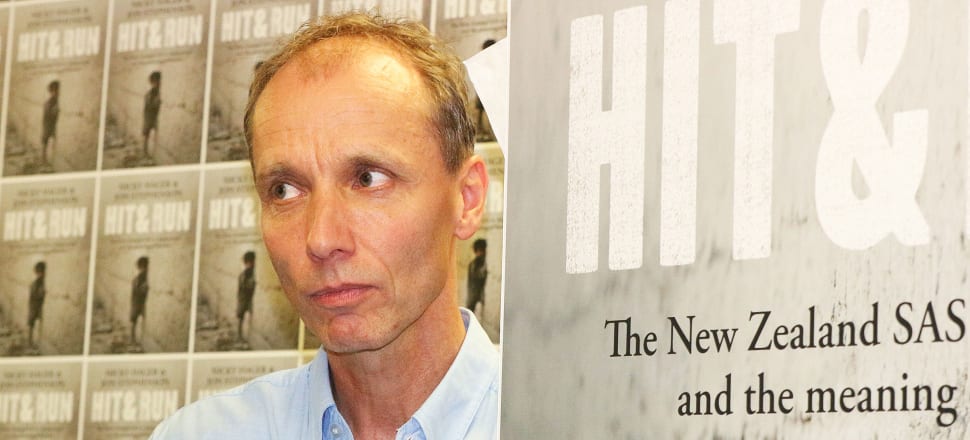
New Zealand author Nicky Hager was keynote speaker at Dataharvest, the European Investigative Journalism Conference, and highlighted the big issues needing urgent and lasting media attention. Here is his speech.
"My usual preference at an event like this is to talk about methods.
But today I have a wide subject, about being investigative journalists in times of trouble – troubled times referring of course to war and multiple other worrying problems such as the far right, environment and social crises and the relentless undermining of democratic politics. I am very aware that everyone in the room has thoughts and expertise on these subjects. My plan is simply to give some things to think about – agreeing or disagreeing -- providing a view from a small country and with a few examples from my own experiences.
To begin, I will make a few comments about investigative journalism today.
The last 10 or so years have been the era of the spectacular leaks. I have worked on various of these: the big Wikileaks leaks about a decade ago, four tax haven collaborations and the Snowden leak, which were shared out around investigative journalists in different countries to find interesting stories. I have gratitude for the leakers and also for the people who facilitated the leaks.
But the first thing I want to say today is that I wonder if these spectacular leaks have created a distorted view of what investigative journalism is about and how it is done. I enjoyed and appreciated these leaks, but almost all the most important projects I did in that decade were other work. As a model for someone coming into investigative journalism I think it is giving an unhelpful picture of what investigative journalism is about.
For a start, there’s no reason why the latest leak will be on a subject that is or should be a priority for us in these times of trouble. For instance I have personally spent years on tax havens. They really matter. But are they most important? With big leaks, we’re suddenly working on tax havens or international spying, when the world might need us to be doing completely different things.
Also we don’t want it to seem as if investigative journalism can only happen with a mega-leak. Most investigative journalism follows a completely different path, using a multitude of other tools.
I also don’t like “biggest leak ever” and “largest collaboration ever” type journalism as a way of grabbing attention. We all know that a big leak may be boring while a small leak, or even just a crucial tip off, might be world changing. It sounds like getting a spectacular leak is the pinnacle of investigative journalism but it is not.
A better approach is to choose the issues where we are most needed and get to work on them. That is where most of our efforts should go.
In contrast to the big leak picture of investigative journalism, I want to spend a few minutes running through the basic processes of our profession, where we start with just a hunch or a tipoff about a new subject and can end up producing important and influential work. I’ll be speaking at this stage especially to the newer investigative journalists in the room but it’s worth it for all of us to think about the basics of our trade.
I will describe the process in five steps.
The first and crucial step in our processes is deciding what most needs our work. We investigative journalists are not technicians; we have acute observation powers and instincts. One of the main things we bring to our work is that we think about and care about issues. We have strong opinions (strong and hopefully well informed opinions). We recognise problems that others aren’t thinking about. We are offended by immorality and deceit. I will shortly talk about some of the big issues that we face, but the point here is that our first great power is that we can decide which things we want to work on. Having made that decision, almost mysteriously, opportunities often start appearing and things start to happen.
When I decide I’d like to be working on an issue, I call it “putting it on my List.” Nothing great may happen for a long time. But even when I’m busy on other subjects, the act of putting it on my mental list starts it working away in my mind.
The next step is working out, for this issue, what we’d most like to find and what questions we most want to answer. This sounds obvious and easy. But sometimes, in large and multi-faceted issues like climate, politics and war, it is crucial to ask ourselves what information, if we could find it, would most make a difference.
The third step is about mapping out all the possible sources of information: insiders, former staff, open sources, leaks and the rest. I always enjoy this, where it starts off feeling like there are very few options and then the idea-list gets longer and longer. What organisations and companies hold information we are looking for? What are obscure published sources? Field work. Social media tools. Existing data sources we can use again. And much more. The tools and techniques seen at [the conference this speech was delivered at] Dataharvest, provide more opportunities. The art here is to be creative, stretch out the possible options as wide as possible.
Step four is very practical: breaking down all the ideas so far into a To Do list: call this person, find this kind of person, do these FOI requests, spend an evening searching this subject, visit the specialist library and so on. I find that forming the To Do list can make all the difference. Even when I’m busy on other projects, I find that just having thought through the To Do list means I find time to write the information requests and visit the library. I hear about people who might be worth approaching. People in New Zealand ask me why whistle blowers so often come to me. I reply that they nearly always don’t come to me. I go to them.
I have a personal saying, from back when I interviewed many intelligence staff for my first book, that all the information in the world is accessible somehow; it just has a price tag of hours on it, meaning how much effort and persistence is needed to get there.
Step five is analysis: rereading, sorting and processing the interview notes and other data we’ve gathered; and looking for clues and leads. This can be the stage when we suddenly understand what we’ve found. There’s a subtle but crucial aspect to how we should view each piece of information we’ve gathered. A daily journalist sees them as potential components of a story; we should see them as clues, leads or pointers to information sources to be leveraged to take us further. Any time I read documents, I jot down a follow-up list of the clues and leads revealed and To-Do items for following them up.
One, two, three, four, five: these are the tried and true steps of how we can make a difference in this role. They work over and over again. Of these steps, the most important is us deciding what needs investigating. In a time like now, of multiple troubles, it matters immensely that we focus on the work that is needed most. I am of course not saying that spectacular leaks can’t be worthwhile. But we can’t wait for them on subjects that matter and in fact there is usually more power and achievement from the work we do using the well-established processes of investigative journalism I’ve been discussing.
This leads to my next subject: talking about the troubles we face. This is a huge subject so I will just mention a few of the things that people like us should be thinking about at this time.
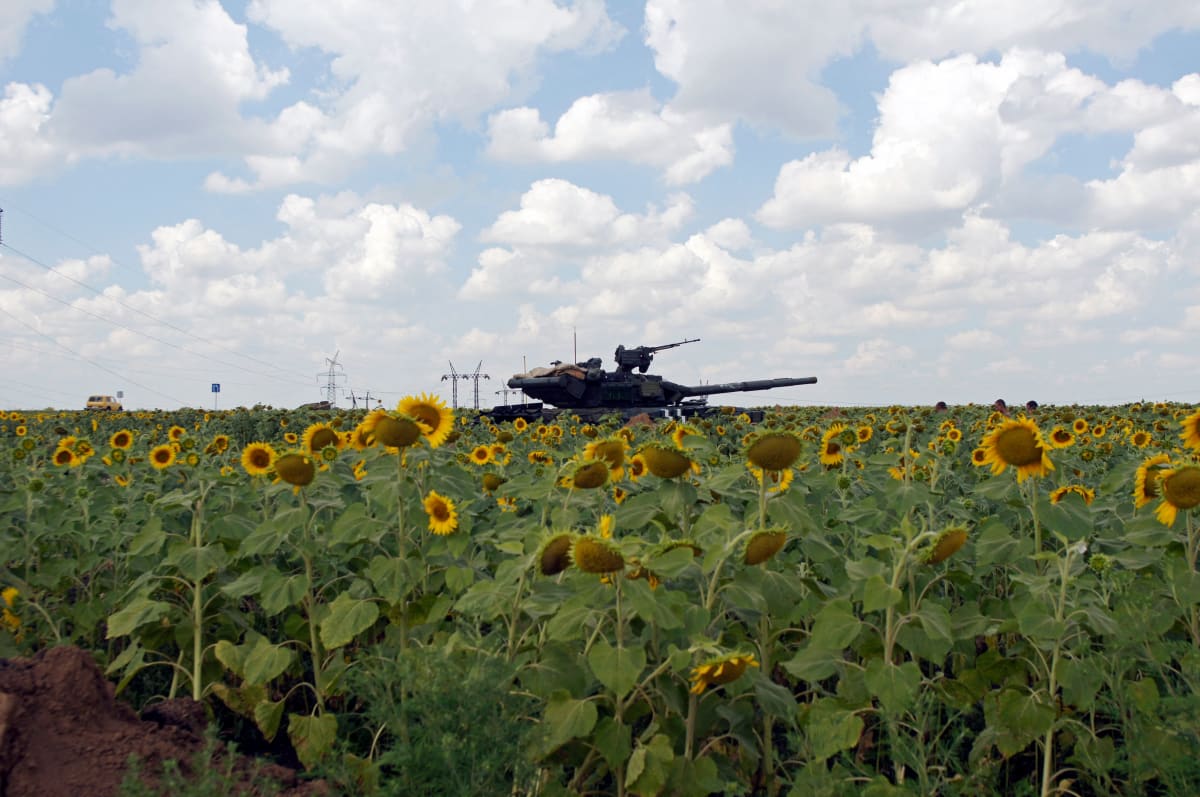
I will start with the depressing subject of war.
I want to acknowledge first that this is a raw and painful subject, where people you know may have been harmed or be in danger. Wars are the worst breakdown of human civilisation, unleashing terrible things.
I have spent over half of my work time in the last 20 years investigating war. For all that time we have been living through a series of wars. Considering how profoundly terrible they are, there is usually nowhere near enough solid investigation and writing. I think it is vital that investigative journalists prioritise this area of work, not leaving it to on-the-ground war reporters who mostly have different skills.
With the current war in Ukraine, you are all closer and probably more engaged than me. So I will make some more general observations about war as a subject for investigative journalism.
First, it is very hard to report accurately in the midst of the fighting and the media’s need for instant daily news makes it easy for propaganda to be spread. Then, when the fighting is over, most media quickly move on. The stories put out by military PR people frequently become the accepted truth.
This is why the kind of slow work we do is so necessary.
My repeated experience is that militaries feel they have a licence to say what suits them, or what enhances their reputation, but not a requirement to tell the truth. There are decent people in the military, as with any profession, but the organisations believe they have a right to hide things that the public or politicians would not support. I have military documents where so-called “media operations” were a sub-set of psychological operations, where the reality of the war was deliberately hidden to achieve the operational goal of continued government and public support for a deployment. We should always assume that vast amounts of what happens during a war is successfully kept secret, despite the public interest in it being known. It still needs to be found out.
Therefore, a lot of the work begins, not ends, when a battle is over.
Once we have time and apply ourselves, there are 1000s of present and former military staff and other rich sources to be found. I wrote two books on the Afghanistan War, which I recommend to you not to see the text, but to show the endnotes that reveal the fantastic diversity of sources that can be found. Indeed, my experience is that a lot of military secrecy is cosmetic; they’re not very good at it. A determined investigative journalist can find out huge amounts.
One such resource, that I have used repeatedly in the study of war and foreign policy, is the US military and State Department files released and made permanently accessible to us all by Wikileaks. If you’re not familiar with this resource, be aware that amazing riches of detail await you there. And spare a thought for Julian Assange, who is being pursued and punished for precisely this work and deserves all the support we can give.
It doesn’t matter if we are reporting on things that happened years before. Transparency and accountability are better late than never. One of my Afghanistan books was about civilian casualties during a night-time raid led by New Zealand soldiers, years after it happened. It still got plenty of publicity (including the head of the military saying there hadn’t even been a raid) and led to a two and a half year government inquiry. The inquiry called the New Zealand Defence Force’s actions, hiding information and misleading ministers, “deeply troubling”. Revelations about wars and war crimes luckily don’t tend to date.
War is often represented in black and white terms but usually it is murky. Both sides will be culpable and both need our attention. But also there’s a very practical reason for looking at what “our” side is doing, since this is where we have the greatest chance of affecting constructive change.
We also need to be careful not to join in war propaganda. You will have seen that Chinese leader Xi Jinping is called a New Hitler. So too of course is Vladimir Putin. And before them so were the New Hitler Saddam Hussein in Iraq and the New Hitler Gaddafi in Libya, both also Madmen, each of them demonised before being deposed and killed.
It is typical of war propaganda that the enemy is personalised to one individual and then characterised as crazed, isolated and yet another New Hitler. The opposite of a cartoon-like bad guy is where we provide context: history, politics, economic interests, Great Power manoeuvring, the opinions of the local people; the points of view of all parties. The more we study the context of a conflict, the closer to the truth we will be.
As I said, there are good reasons to focus on our own countries and allies because that’s where our governments are responsible. The country responsible for the most wars and coups, the country with the largest military spending, and with the most offensive military equipment, the most foreign military bases, the most international spying and the most arms sales of any country on earth, as we all know but rarely say, is the United States, long-term ally of your countries and mine.
We have a special long term responsibility to investigate all these things and the alliances that tie us to them. This should include investigating the role and operations of foreign military and intelligence bases; what major equipment like aircraft carriers is being used for; the military strategies and war planning; the alliance links and what joint exercises are practising. Also “interoperability”, a boring-sounding word that means continuously preparing our countries to go to war alongside the US and UK, including in the coming resource wars. And, of special importance to us, the control and funding of journalism by these countries, including ensuring that we don’t get caught up in it. We also have a responsibility to investigate the dirty secrets from past wars and military activities.
There’s far too little work going on to monitor and reveal these things. It is all crying out for more investigative journalism.
Also it dismays me that the current war in Ukraine may have a lasting result of a more US-dominated Europe and a renewed Cold War. Looking from the South Pacific, I see the EU, for all its faults, as a reservoir of respect for rule of law, human rights and the United Nations. If the independence of Europe is weakened, it affects is all.
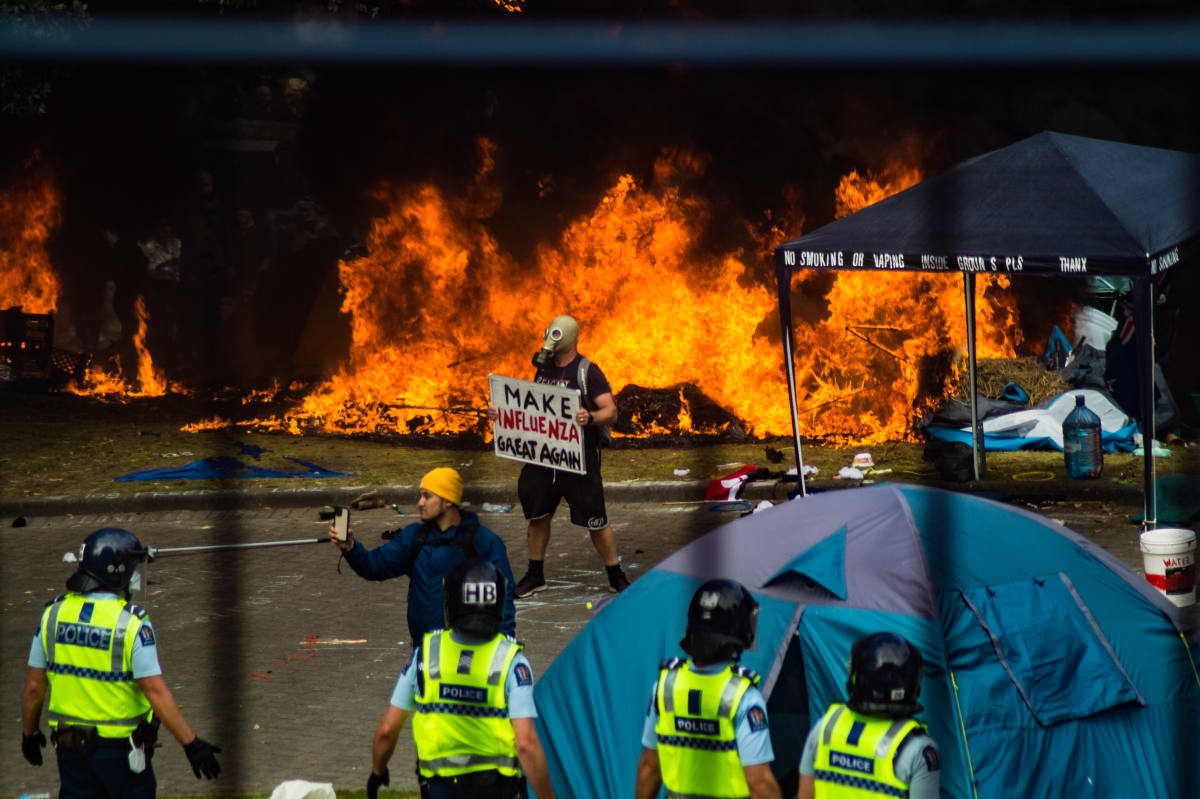
This leads us to the next major trouble of our times, the growth of the far right.
For years I have watched the growth of the far right in Europe with alarm. This is for your sake and, as I said, because other countries such as mine rely on a stable, democratic Europe.
In recent years years we’ve had two bad experiences in New Zealand of the growth of the far right, both apparently foreign-inspired. The first was a bloody attack on two mosques by an Australian far right fanatic and then just this year a US-inspired protest against covid policies that was used as movement building for the far right.
The protest was in February this year, when New Zealand anti-vaccine groups staged an action imitating the Canadian “freedom convoy” truck protest. Hundreds of people took over the Parliament sector of the city for four weeks, with effigies of people in nooses and being guillotined, and slogans about executing the Prime Minister. It had an ugly ending with protesters pelting the police with rocks and setting their tents on fire.
The most chilling part was the social media statistics. They revealed that more people were getting news about the parliament protest from right-wing and conspiracy social media than from all the mainstream news media combined. The “mass” media was out-massed. It was unprecedented in New Zealand, showing the danger of on-line propaganda. There’s been talk for years about what happens when whole sections of society are detached from mass media and here were some of the consequences.
I mention this story because it is a microcosm of worse things happening in many other places. Personally, I have decided I need to do work on these essentially fascist movements. I’ve put it on my list. You may already be working on this too. It is a dark cloud and there’s urgent work to be done.
This also raises an interesting issue. As investigative journalists, a lot of our work centres on critiquing governments and uncovering things that they would rather have hidden. There is a risk that this can feed straight in to the narratives of the conspiracy theorists and far right: that governments and politicians are all corrupt, that they’re all just as bad as each other, that they are controlled by powerful forces. This is dangerous when the legitimacy of democratic government is already under attack on various fronts.
I don’t think there is a simple answer to this, but I believe that part of the solution lies in our approach. When we expose wrongdoing, we are implicitly calling for a better world. Our currency needs to be hope, change, and improvement, not outrage and disengagement. We need to be careful of our approach and framing, but we also still need to carry out our role of holding governments to account, despite the activities of the far right.
Also, I want to mention a positive story about our parliament protest. During the protest there was a lot of excellent research done, particularly using the massive amounts of social media video and chatter. Good work was done by some journalists but the exceptional work was done by two non-media people who reported on what was being said and done in the protest hour by hour. One was a university researcher and the other an anti-fascist campaigner.
This raises another important issue about our work, which is that some of the best investigative journalism is done by people who aren’t working as investigative journalists. It can be documentary and podcast makers, retired specialists, academics, the Amnesty researcher on surveillance or Greenpeace researcher on fisheries, and so on. I think we need to avoid professional snobbery and be willing to work with anyone doing good work, sharing skills and collaborating with them. They are our natural allies.
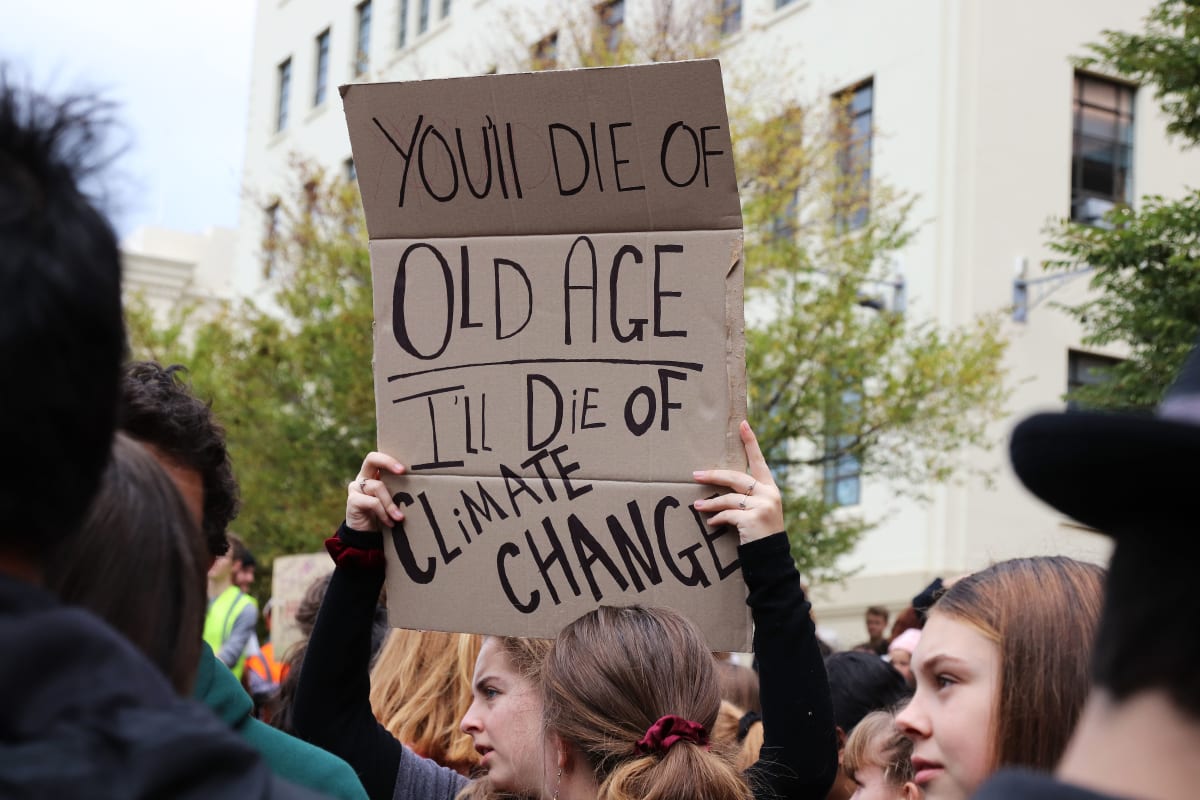
The next issues are climate and environment. There is of course already good investigative work being done here.
The thing I want to emphasise with climate and environment is that the main problem stopping change is not a lack of facts about the issues. The main thing stopping change is the continuous organised obstruction, delay and watering down of environment policy by well funded industry lobby groups. It is the fake community groups – Mothers for More Motorways-type groups – the paid spokespeople and publicity campaigns, the funding of biased experts, the full-time lobbyists, the corporate election donations, the law firms threatening to sue governments for introducing needed regulations and the rest of the mercenaries who help companies fight desperately needed change. There’s nothing especially new about this problem, except that there’s more and more of it. When decades of climate change denial didn’t work so well any more, they shifted to greenwash and continued fighting regulation. These tactics are at the heart of the politics of climate and the interrelated issues of water, food, natural places and transport.
Exposing these tactics and the vested interests behind them is one of the best ways we can make a difference in this area. There is a public appetite for stories that reveal secret manipulation so we shouldn’t need to struggle to get them published.
I became aware of the growth of anti-environmental public relations campaigning in the late 1990s. I put it on the list. Some time later I found someone willing to lend me a wonderfully complete set of files from a United States PR company that was running a very aggressive pro-logging campaign on New Zealand rainforests. I stood at a photocopier for the whole night (those were less digital days) and got the box of files back to my source by early morning to be put back in the company offices. It was such good material I used it to write a book; and it revealed such cynical and grubby tactics that it helped to discredit and end the logging. I’ve kept returning to the subject of anti-environmental tactics since then because it seems like an especially helpful way we can make a contribution.
This type of organised obstruction goes on year after year on many issues. There are industry-funded PR campaigns on virtually every controversial or disputed issue. PR and related industries have grown exponentially in the last generation. But most of these anti-democratic tactics go on uninvestigated and unreported. PR people say that the best PR campaign is one that no one knows is going on. Many achieve this.
A lot is written and said about climate that seems hopelessly inadequate compared to the size of the problem. But investigating and exposing the people resisting change seems like exactly the right thing at the right time; joining the fight of our times. Exposure and bad publicity are some of the best defences against these lobby groups and their tactics.
Just reminding you where we’re up to: I’ve talked about three of the troubles of our time and have two more to go (and obviously there are many others we won’t have time for). Then I will talk a bit about how we can look after ourselves and keep going, followed by a few final thoughts about our role in society.
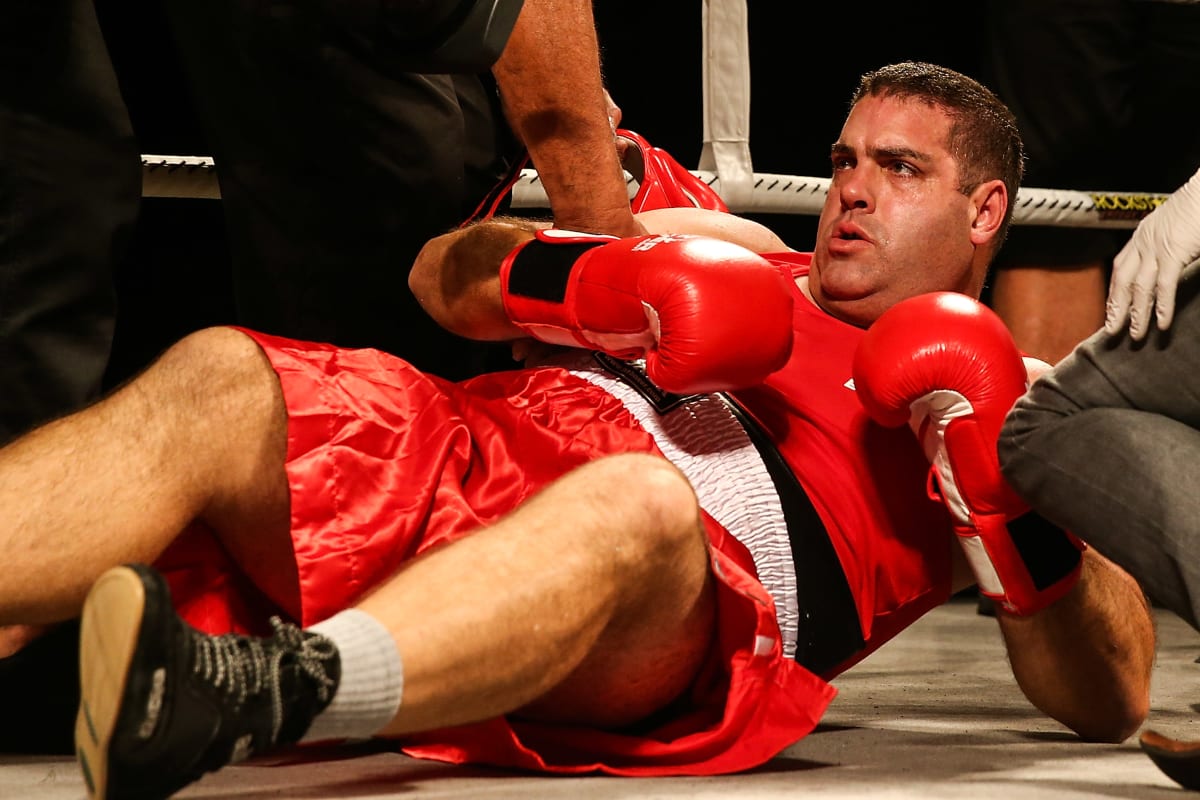
The next troubling issue is that we live in an era of organised undermining of democratic politics.
I’ve just discussed the paid anti-democratic forces fighting climate and the environment policy but it goes on with most issues. It’s a huge subject. I will mention only a couple of ideas.
Industry lobby group campaigns like to argue that they are just having their say in a democracy. But often a large part of their effort and paid resources go into trying to stop their opponents having a say, for example by attacking their funding for being “too political”. It is anti-democratic; designed to silence the scientists, experts, public interest campaigners, politicians and others who speak up on issues that affect the industry profits. They know it is much easier to push unpopular agendas if the public interest voices are quiet. We see this in many issues which look superficially like democracy at work but where business and other powerful voices dominate. A thinned out democracy.
I see investigative journalism as essentially a public service, working alongside the other people in our societies who are serving the public interest in different ways. One of the useful things we can do with our skills is to help protect those other people from being silenced by PR companies, lawyers and the rest. Here are two examples.
Example one. I did a book in 2014 about a prominent New Zealand right-wing blogger, associated with the then governing party. The blogger specialised in personal attacks, which he published daily against his party’s political opponents and more or less any person involved in public interest issues and politics. Smears, mocking, half truths, sex scandals: social media are the ideal unregulated zone for such tactics. Many people were intimidated and silenced by him and his helpers, which was their purpose. It was having a seriously bad influence on our democratic culture.
I had become aware of this sometime earlier and put him on the list. As often seems to happen when our antennas are tuned, I was lucky and found a good source.
It turned out that the operation was being fed with information and attack lines by a dirty tricks coordinator in the prime minister’s office, from his office two doors from the prime minister’s. Before the book, our media, to their shame, had recently voted the blogger as media blogger of the year. They regularly picked up stories from the blog and took attack stories directly from him without declaring the source.
The launch of the book, which revealed the dirty tricks team in their own words and communications, had an immediate effect on everyone involved. The blogger dramatically fell from grace, as did the Minister of Justice who was one of his main sources of attack stories. The book, which has the unsubtle title Dirty Politics, still has an influence on discussions of politics years later.
My favourite part of that book was catching a PR man who was writing personal attacks and paying the blogger to post them on behalf of his hidden clients. Various high-profile public health academics specialising in alcohol, sugary foods and tobacco were being attacked week after week, year after year. Each time one of his smears was posted, the PR man would leave a series of comments under different names, further smearing the academics. Luckily, there were documents about this smear campaign in the leaked papers I received. They revealed the identity of the PR man, who had previously been head of corporate relations for British American Tobacco, and showed him sending through each smear to be posted online. The medical professors used the book to go to court and successfully sue those involved.
Similar social media manipulation of course goes on in other countries. These people watch each other and copy each other’s tactics. This story may remind you of something similar in your country. It is not easy to gather information on the covert parts of this work but difficult projects can be most rewarding. We can use the reliable processes of investigative journalism I talked about earlier and see what information comes.
Example two. As mentioned, there is an industry in trying to silence public interest voices. Whenever possible I try to help by exposing and shaming the tactics and the companies involved.
I’ve exposed
- private investigators that spy on and infiltrate climate groups (many times);
- tobacco industry tactics used to intimidate Ministry of Health researchers;
- campaigns to have outspoken university lecturers fired or at least silenced;
- organised efforts to cut off sources of community group funds;
- and, most recently, private investigators watching the houses and tailing the cars of former cult members to stop them speaking against the cult publicly.
These sorts of tactics can unfortunately be cheap and effective tools for minimising criticism of their clients.
I think all this matters a lot. There’s much more harm occurring to the democratic/public interest side of our societies than we realise. But also this is an important strategic opportunity for investigative journalism. We can make a contribution to the public good by helping those people carry on their work and stopping them being silenced.
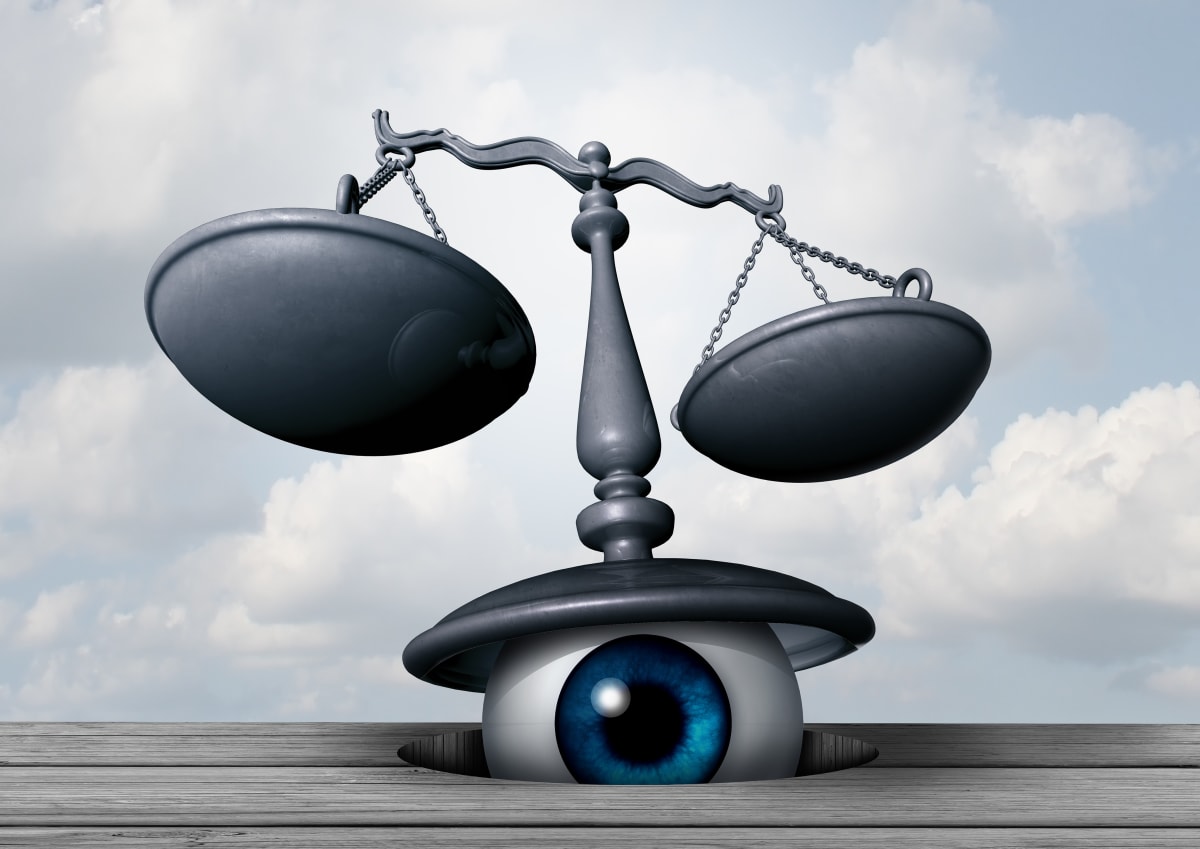
Last but not least in the list of troubles is social fragmentation and the increasing emergence of inequality between rich and poor.
I don’t have time to say everything I’d like to about this. But I would like to name the worst social problem by far in my country, which is uncontrolled house price inflation and a resulting massive transfer of wealth from less rich (and younger) people to richer people. If you are lucky enough to live somewhere where this isn’t the dominant social problem, it might sound like an obscure problem. But in my country and others, it is the root cause of many serious problems. As usual there is a well-resourced political campaign to try to stop policy changes and regulations. It urgently needs investigative journalism.
I will give a few thoughts now about how we can look after ourselves and keep going; and then end with some comments about our role in society.
Early in my career a wise person saw me throwing myself into my work and gave me some advice. He said that if it is important to do this work now, it will still be needed right through our lives. This is right of course. And if we can keep going, then over time we discover how much more can be achieved in decades than in years.
I believe that investigative journalism is an inherently optimistic activity, based on a belief in the decency and social conscience of others. It is based on the hope that our work can produce change. It is based on the belief that sources will trust us and risk themselves to help get information to the public. It is based on belief in the good of ordinary people and that they will care about issues we reveal.
It is an optimistic activity, but doesn’t always feel that way. I was pleased to see that there is a session called “mental health for journalists” on Sunday morning. We do hard and sometimes discouraging things, and none of us are indestructible. I will add a few of thoughts on this subject.
First, we can’t work on everything. I take comfort from the thought that while I work on some issues, other people are working on other issues. It is a joint effort.
Also I know that burnout happens but we can recover. It seems to happen when we push ourselves for too long without feeling motivated. I find the best cure is a rest, friends and time out in nature, then changing to new projects where I do feel motivated, away from whatever I’d been feeling allergic to.
I’ve also become aware that one of the most precious things in my work is thinking time. I consciously plan my life to maximise thinking time. We all know about the things that fragment and use up our time. I’m just saying it, it helps immensely to have more time to think and let ideas bubble up from our subconscious minds.
Next, newsrooms are not always friendly and collaborative places. An antidote for this is building friendships and networks with people across our profession. This makes us far more likely to continue in journalism. I believe the main value of a conference like this is to give us a chance to meet others.
Although we hear about “largest collaborations ever”, the ideal size for effective collaboration is often two people, or a few people, a scale where great focus is possible and good relationships can grow.
Also, investigative journalism structures need to be consistent with our values, making space for, and giving equal influence to, people who are not from dominant countries and races. This doesn’t seem urgent when you’re from the dominant countries or races, but it does when you’re not.
And while I’m mentioning collaboration: I believe in collaboration. I don’t mind being contacted for information or advice. My contacts are not hard to find.
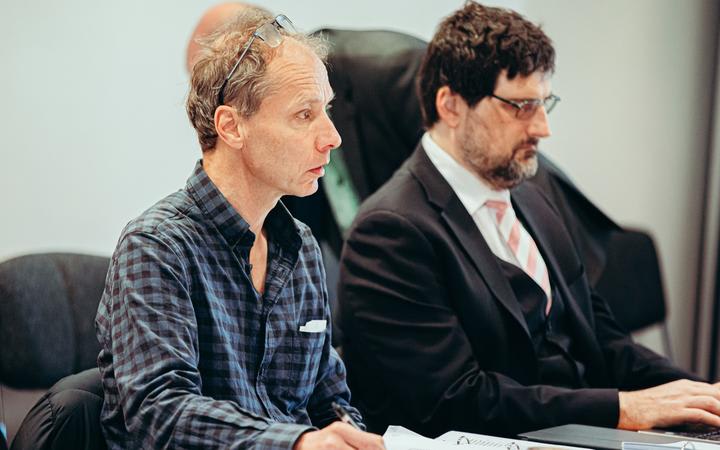
A few final thoughts:
The public, and especially young people, need us not to be pessimistic or cynical. This means managing our own feelings. Yes to pointing out problems. Yes to pointing them out loudly. But one of the most important things we can give others is the hope that things can get better, that it’s not all hopeless, that people care.
The media gets a lot of criticism and that can erode public respect. Our work can build it. We know that how we act is as important as what we do, for instance how we speak in public, and how we treat people including people we’re criticising, and definitely how we treat our sources who we must always put first. Whether we know it or not, we are some of the spokespeople for ethics in our societies. There are laws and police forces for crime, but not for truth and ethics. The public needs people more than ever who they can trust about what is fact, and what is right and wrong, and also who will talk honestly about the grey areas. These are more reasons why we have to look after ourselves, including looking after our optimism and hopefulness.
Investigative journalism is, first and foremost, a democratic activity, a public service, where a relatively small number of people using the skills of our trade can sometimes make a massive difference to the issues we work on. It is, at heart, about making things better, about change. The public don’t care whether we win awards; they want us to help change things.
The profession of journalism should be clear that it is on the public interest side. It is about redressing the obvious inequality of power and creating the possibility of democratic decision making. Often it is the PR companies, industry lobbyists, spin doctors and the rest on one side, and the news media and other public interest forces on the other. Investigative journalism is an important part of giving the public interest side a chance.
We are not part of a news-entertainment industry. We are not here just to produce tomorrow’s scoop and long reads and media awards. We are here to make a difference. Many people care about the same things as us and wish they could do something about them. We’re the lucky ones. We have an opportunity to do something.
We should push it as hard as we can, accepting you can have trouble for challenging the powerful. We should stick together and support each other. We should look after ourselves and ensure we keep going. We have work to do. People are relying on us."







